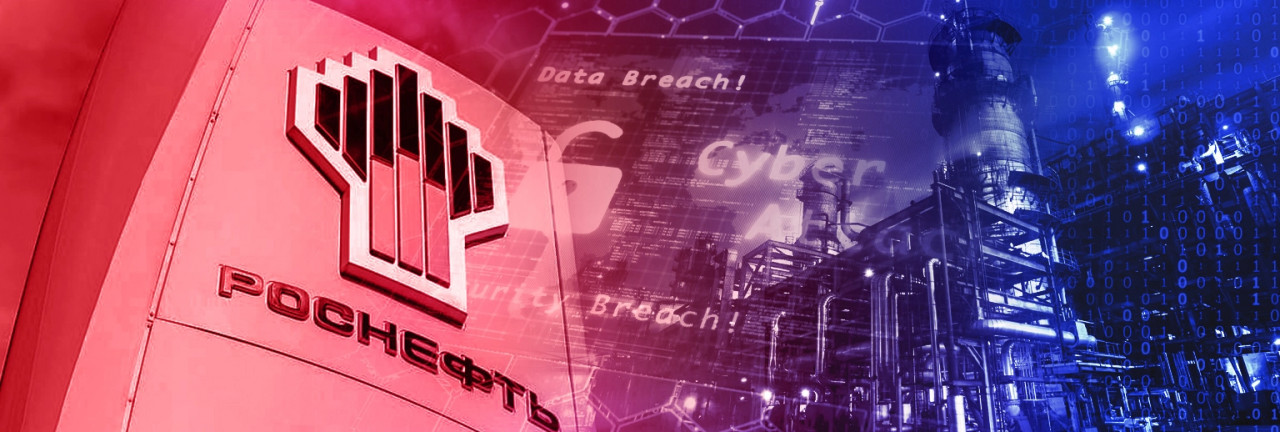Source: www.exponential-e.com – Author: Graham Cluley
A 30‑year‑old man has been charged with launching a cyberattack on the German subsidiary of Russia’s state-owned oil giant Rosneft. The cyberattack, which happened in March 2022 in the aftermath of Russia’s invasion of Ukraine, crippled the company’s operations and cost millions of euros in damages.
According to investigators at the Federal Criminal Police Office (BKA), the attack saw approximately 20 terabytes of data stolen and then deleted from the business’ computer systems, with a message – ‘Glory to Ukraine’, left in its place.
The data allegedly stolen by the man was later distributed by the Anonymous hacktivist collective, revealing that the attack had successfully penetrated the IT systems of Germany’s third-largest petroleum refining company, gaining access to:
The man, whose identity has not been disclosed, has been charged under computer crime laws with computer sabotage, data alternation, and data espionage. Prosecutors claim that the cost of Rosneft Deutschland shutting down its IT systems and the subsequent forensic investigation cost it approximately €9.76 million (around $11.39 million), with subsequent additional losses of roughly €2.6 million (over $3 million).
The German government took control of Rosneft’s German subsidiaries in September 2022 as a result of Russian attacks on Ukraine.
Although Anonymous declared its motivation for attacking Rosneft was its close ties to Russian president Vladimir Putin, and the company’s efforts at the time to evade sanctions, the threat of a cyberattack is clearly something which should be a concern for all businesses in the energy sector.
Energy infrastructure is a prized target for attackers seeking to have an economic or political impact.
In the past, hackers have successfully managed to disrupt power supplies across parts of Ukraine on numerous occasions, targeted a petrochemical plant in Saudi Arabia, and caused 5,500 mile oil pipeline to be shut down.
It is clear that all organisations, and in particular, those considered critical national infrastructure – would be wise to take the threat of cyberattack seriously.
On 1st October, Exponential-e will be hosting an event entitled ‘Transforming our nation’s critical services through cyber secured engineering’ at The Shard in London.
The event is tailored exclusively for operators of essential services, and presents a unique opportunity for organisations to share experiences, and learn how to better secure how the UK’s mission-critical services are delivered.
Places are strictly limited, so register now to avoid disappointment.
Stay Informed
When you subscribe to the blog, we will send you an e-mail when there are new updates on the site so you wouldn’t miss them.
About the author
Graham Cluley is an award-winning cybersecurity public speaker, podcaster, blogger, and analyst. He has been a well-known figure in the cybersecurity industry since the early 1990s when he worked as a programmer, writing the first ever version of Dr Solomon’s Anti-Virus Toolkit for Windows.
Since then he has been employed in senior roles by computer security companies such as Sophos and McAfee.
Graham Cluley has given talks about cybersecurity for some of the world’s largest companies, worked with law enforcement agencies on investigations into hacking groups, and regularly appears on TV and radio explaining computer security threats.
Graham Cluley was inducted into the InfoSecurity Europe Hall of Fame in 2011, and was given an honorary mention in the “10 Greatest Britons in IT History” for his contribution as a leading authority in internet security.
Original Post URL: https://www.exponential-e.com/blog/germany-charges-hacker-with-rosneft-cyberattack-in-latest-wake-up-call-for-critical-infrastructure
Category & Tags: Data loss,Guest blog,Law & order,Security threats,critical infrastructure,data breach,energy,Germany – Data loss,Guest blog,Law & order,Security threats,critical infrastructure,data breach,energy,Germany
Views: 5























































